All systems go for further MPI achievements in 2023
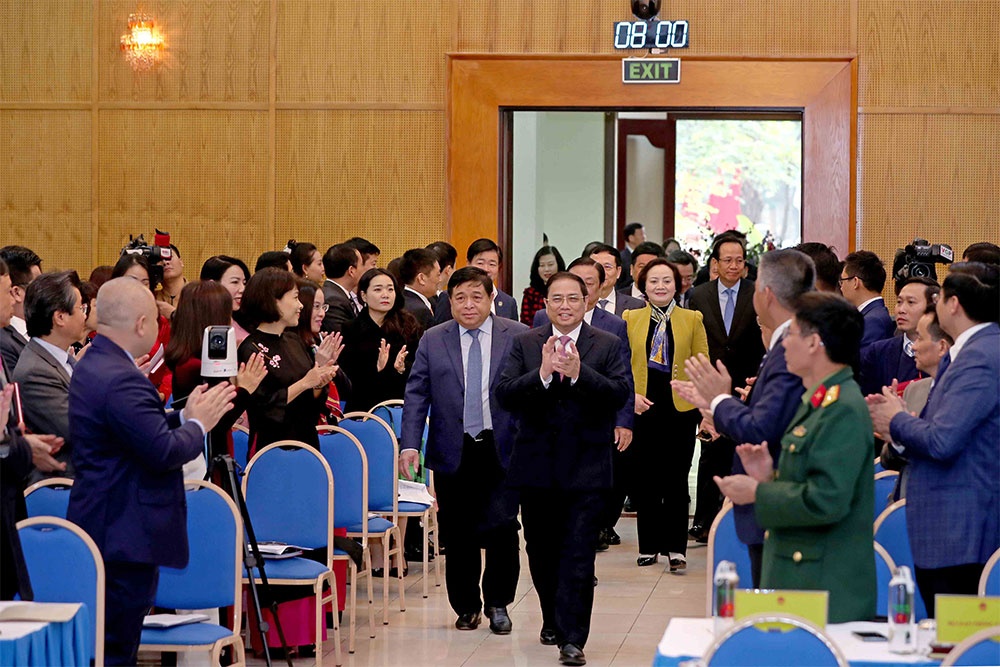 |
Earlier in January, the National Assembly held an extraordinary session to consider the national master plan for 2021-2030 with a vision to 2050, which has been submitted by the government and drafted by the Ministry of Planning and Investment (MPI) to oversee the development goals of the country for the next few decades.
Deputy Minister of Planning and Investment Tran Quoc Phuong said that the national master plan is the framework for the development of the country’s infrastructure, and includes transportation, urban areas, energy, digital efforts, culture, and societal issues.
“We have pointed out and created an efficient and sustainable spatial planning model for national development, forming dynamic economic zones, economic centres, strategic cities, synchronous infrastructure networks, connecting regions, and connecting between urban and rural areas,” Phuong said.
“We are creating conditions for high economic growth, aiming towards the goal of becoming a developing high middle-income country with modern industry by 2030 and a developed, high-income, just, democratic, and civilised society by 2050,” he added.
The master plan identifies and focuses on developing a number of fundamental industries to meet the needs of the economy’s basic means of production, including high-tech, digital, and green industries, associated with the circular economy model.
“The arrangement of industrial space will also develop urban and service centres to form economic corridors and dynamic zones,” the MPI deputy minister said. “This includes expanding industrial development space to the west of the North-South Expressway’s eastern cluster and the midland region, and to reduce pressure on land use in the Mekong Delta and mitigate the impact of climate change.”
For service industries, the MPI orientates to build regional and world-class commercial and financial centres in big cities, associated with the development of dynamic areas and economic corridors.
Of this, the MPI sees two economic corridors covering the country, including the eastern economic corridor linking the North-South Expressway to the east and a section of National Highway 1A from Lang Son to Ca Mau; and the western economic corridor linked with the Ho Chi Minh Highway and North-South Expressway to the west.
Dynamic areas are raised by the MPI on the basis of existing key economic regions, areas with the most favourable locations, and with gateways to international airports and seaports in combination with transshipment, and with the potential for science, technology, and innovation.
Besides the national master plan, the MPI is completing and submitting for approval five regional plans, 42 provincial plans, and more than 30 sectoral master plans.
“Although the requirement must be fast, the quality of planning must always be put first and must be considered as an opportunity to organise and rearrange the development space, in order to promote the potential and take advantage of the strengths of each region, each industry, and field, creating new driving forces for the country,” emphasised Deputy Minister Phuong.
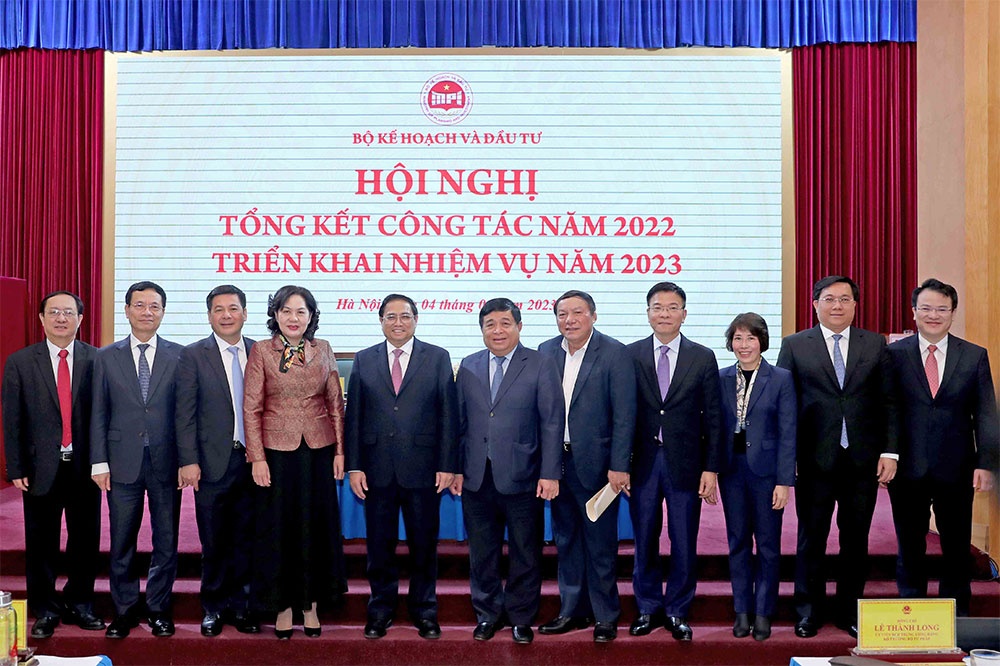 |
The national master plan will be the foundation for the country to remain high GDP growth at 7 per cent until 2050, while GDP per capita will reach about $7,500 by 2030, and $27,000-32,000 by 2050. The proportion of urban population will be over 50 per cent by 2030 and 70-80 per cent by 2050.
There will be about 5,000km of expressways nationwide by 2030 and 9,000km by 2050, and high-speed rail will be completed.
In addition to the regular tasks of providing advice for socioeconomic plans and master plans of the country and every locality, the MPI is often assigned special tasks like building billion-dollar socioeconomic recovery and development programmes to tackle the impact of pandemic.
“The bailouts built by the MPI has enabled opportunities to arise from the pandemic and drive socioeconomic development,” said Dang Xuan Phong, Secretary of the northern province of Lao Cai’s Party Committee.
Specifically, the main recovery programme provided various solutions in all areas to ensure social security and employment support such as providing loans for job creation and retention; exemption and reduction of taxes, fees, and charges; infrastructural development investment; institutional and administrative reform; and general improvement of the business investment environment.
“Most of these measures provided by the MPI have generated positive impacts on socioeconomic development,” said Tran Tue Hien, Chairwoman of the southern province of Binh Phuoc’s People’s Committee. “The MPI deserves the trust of the government and expectations of localities, and is a solid support for domestic and foreign business as well as the investor community.”
| Pham Minh Chinh, Prime Minister
On behalf of the Party and state leaders, I highly appreciate and praise the efforts of leaders, civil servants, and employees related to planning, investment, and statistics. The results attained made an important contribution to the country’s achievements in 2022. Last year, the Ministry of Planning and Investment (MPI) performed its role for the government in the economy’s running. The MPI closely followed the domestic market, as well as the market globally, to perform its role at the strategic level and participate in coordinating and operating the macroeconomy with specific, effective, and quantifiable results. I saw many achievements from the ministry in 2022. One of the more outstanding events was the submission of the socioeconomic recovery and development programme to the authorities for approval. The $15 billion programme – the largest in history in Vietnam, and which drives social security, healthcare, infrastructure, and business support – has contributed to rebooting and speeding up the country’s economy. The MPI has also contributed an important role in improving the business and investment environment, organising dialogues to listen to the business community’s proposals, and supporting businesses based on the spirit of constructive government. These moves created an open environment, and as a result, the disbursed capital of foreign-invested enterprises reached a record of over $22 billion, in collaboration with the record number of business registrations ever. The ministry plays a key role in building regional links and promoting the socioeconomic growth of localities. It has cooperated with other ministries and authorities on resolutions regarding socioeconomic development, as well as defence and security safeguarding for many regions – which were considered necessary moves to optimise their potential and promote national development. Besides that, the ministry has contributed to enabling the government’s action plan on orientation, and solutions to promote the socioeconomic development of various regions. It has also submitted a report on approval of resolutions on specific mechanisms and policy pilots for the development of Buon Ma Thuot city in the Central Highlands province of Dak Lak, Can Tho, Khanh Hoa, and Ho Chi Minh City. Another major achievement was advising on the removal of approximately 5,000 projects in the medium-term public investment plan, simultaneously determining key public investment initiatives, avoiding prolonged and inefficient ventures, and promoting the public-private partnership model. The improvement of such institutions, mechanisms, and policies has been an effective contribution from the MPI. The ministry also carries out the work of communication and statistics methodically, professionally, and scientifically. Meanwhile, the ministry has promoted effectively the role as the government’s focal point in coordinating with Laos to implement large cooperation projects. In March 2022, Minister of Planning and Investment Nguyen Chi Dung and Laotian counterpart Khamjane Vongphosy co-chaired a business seminar in Vientiane, during which several bilateral agreements were signed. This was a special event that strengthened the friendship, solidarity, and cooperation of the two countries. Results like these are achieved thanks to the MPI’s adherence to the guidelines of the Party, the policies and laws of the state, and the resolutions and conclusions of the Party, the National Assembly, and the government. They are based on initiative, maintaining solidarity, improving management capacity, and strong coordination with ministries, branches, and localities. Broadly, I agree with the targets, missions, and solutions that the MPI plans to implement in 2023. However, I still expect the ministry to carry out existing missions in a more efficient fashion. Notably, the MPI should focus on completing institutions, mechanisms, and policies to drastically implement strategic breakthroughs, while mobilising and effectively using all resources for development investment. It needs to continue to make greater efforts in strategic consulting and macroeconomic coordination, contributing to the successful implementation of the Resolution of the 13th National Party Congress. This includes other resolutions and conclusions of the Party Central Committee, Politburo, National Assembly, and key leaders. There must also be success in implementing the Socioeconomic Development Strategy for this decade, the 5-year socioeconomic development plans towards 2025, and other relevant resolutions and directives. Along with that, the ministry needs to strive to complete the formulation of national, regional, and provincial planning for 2021-2030 in accordance with the Law on Planning before the end of 2023. This year, the country has set the target to stabilise the macroeconomy, control inflation, ensure economic growth, and maintain major balances. Thus, the MPI will gather and evaluate the situation to advise on how to implement these objectives successfully. The ministry must firmly grasp the situation both at home and abroad, promote international integration, and closely coordinate with the Ministry of Industry and Trade and the Ministry of Foreign Affairs to complete these missions. Furthermore, the MPI will strive to build a socialist-oriented, independent, self-reliant, and comprehensive market economy. This is associated with extensive and effective international integration as well as independent and effective foreign policy with the diversification and multilateralisation of international relations. Finally, it is necessary to accelerate construction of the National Innovation Centre to contribute to the nation’s digital transformation; promoting reform of administrative procedures, and increasing publicity and transparency. The MPI also needs to pay attention to improving the quality of statistical work, which must ensure honest, objective, accurate, and transparent statistical information. |
| Nguyen Chi Dung, Minister of Planning and Investment
The planning, investment, and statistics sector has determined the motto of action for the coming year is “Seize the opportunity - Towards the future.” Amid difficulties, there are always some opportunities. If we can seize these, any challenges could become the driving force of the country’s development. Therefore, the Ministry of Planning and Investment (MPI) will have to improve its analytical and forecasting capacity, proactively and sensitively grasp new developments, decisively deal with problems, adapt to new situations, perfect institutions, improve the investment and business environment, and effectively mobilise all resources, taking every opportunity to recover and develop more sustainably. In 2023, a lot of heavy tasks are waiting for the whole industry, including five core missions. First is to complete and submit all remaining plans for approval. There are five regional plans, and 42 provincial plans to be completed. In addition, there are more than 30 sectoral master plans that the MPI will join with other ministries and branches. Secondly, we should complete the construction of the National Innovation Centre and other related facilities in provinces and cities; and build and develop an innovation ecosystem in the country, linking with leading innovation centres and ecosystems worldwide. Next, the MPI will further meet the requirements of timeliness, accuracy, and quality of advice on macroeconomic management, improving the business investment environment, especially in the context that 2023 may have more uncertainties than 2022. Additionally, we should promote faster and more effective structural transformation of the economy and renew the growth model, improve institutions and policies to concretise new economic models, and focus on new trends of green energy. The strategic objective is to green the economy, and improve the internal capacity, autonomy, and competitiveness of the economy. Finally, it is necessary to promote faster and more effective implementation of the three strategic breakthroughs set out by the 13th National Party Congress, especially in infrastructure development and promoting disbursement of public investment capital. |
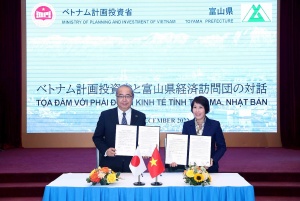 | MPI strengthens cooperation with Japan's Toyama prefecture Deputy Minister of Planning and Investment Nguyen Thi Bich Ngoc and Governor of Toyama prefecture, Japan, Nitta Hachiro signed an MoU to deepen cooperation and economic exchanges, on December 19. |
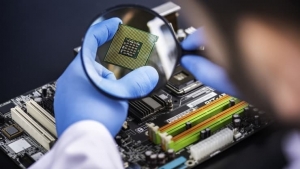 | MPI to attract investment capital in chip production The government has assigned the Ministry of Planning and Investment (MPI) to study and build a policy for attracting foreign investment capital in the chip manufacturing sector. |
What the stars mean:
★ Poor ★ ★ Promising ★★★ Good ★★★★ Very good ★★★★★ Exceptional
Related Contents
Latest News
More News
- Ho Chi Minh City launches plan for innovation and digital transformation (February 25, 2026 | 09:00)
- Vietnam sets ambitious dairy growth targets (February 24, 2026 | 18:00)
- Masan Consumer names new deputy CEO to drive foods and beverages growth (February 23, 2026 | 20:52)
- Myriad risks ahead, but ones Vietnam can confront (February 20, 2026 | 15:02)
- Vietnam making the leap into AI and semiconductors (February 20, 2026 | 09:37)
- Funding must be activated for semiconductor success (February 20, 2026 | 09:20)
- Resilience as new benchmark for smarter infrastructure (February 19, 2026 | 20:35)
- A golden time to shine within ASEAN (February 19, 2026 | 20:22)
- Vietnam’s pivotal year for advancing sustainability (February 19, 2026 | 08:44)
- Strengthening the core role of industry and trade (February 19, 2026 | 08:35)

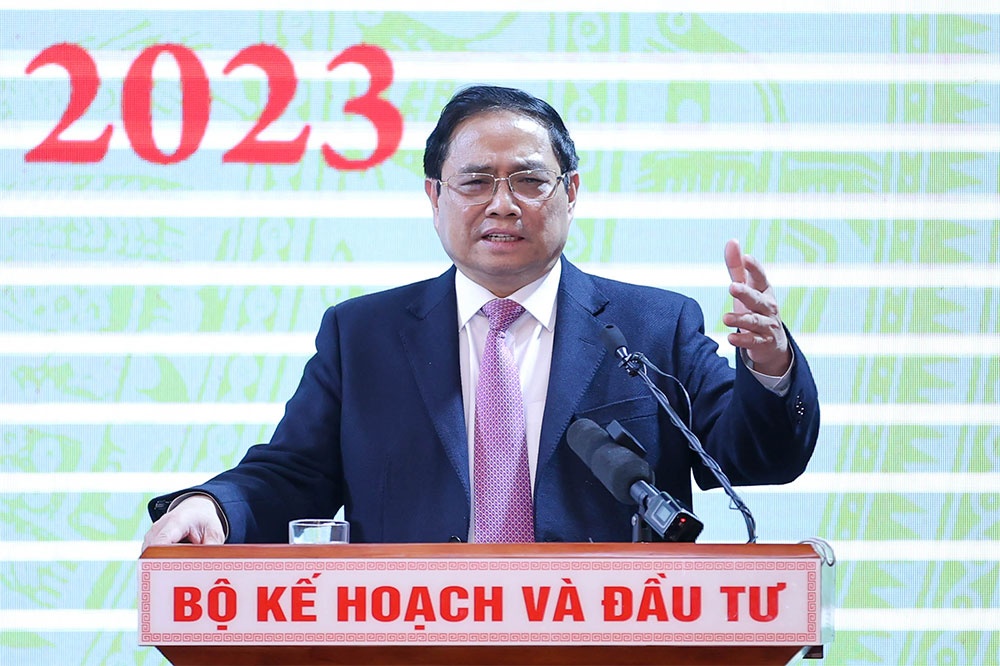
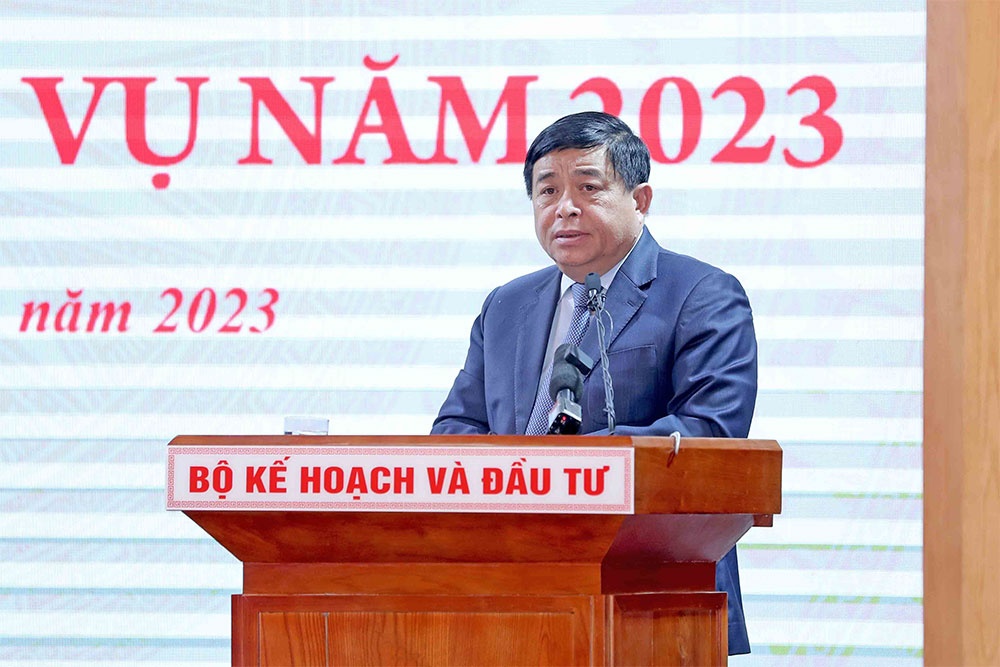
 Tag:
Tag:




















 Mobile Version
Mobile Version